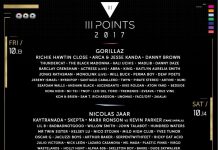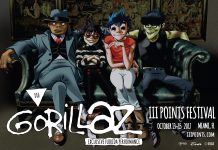Contrary to what veteran rapper Nas proclaimed in 2006, hip-hop is not dead. Rather, the attitudes of rappers have shifted significantly since hip-hop’s “golden age,” which arguably reached its most fertile years from 1993-1996. Those three years boasted an abundance of tremendously talented hip-hop artists, and among the most influential were Nas, The Notorious B.I.G., and Tupac Shakur.
Topics such as the hardships of selling drugs, crippling gang violence, and impending mortality permeated the lyrics of the above MCs during the “golden age.” Not only were rappers involved, but also producers such as the RZA, Easy Mo Bee, and Pete Rock did their part in portraying the subtext that lyrics alone couldn’t accomplish. The producers did this by complementing the rappers’ style by selecting samples and producing beats that were as cryptic, despondent, and aggressive as the words themselves.
To put it simply, the golden age of hip-hop was essentially a melting pot of street poets sharing their inner demons to the world around them. From a listener’s perspective, hearing these songs was often as distressing as it was exciting. Nowadays, when MCs try to convey the same disturbing themes as rappers during the golden age, their music often winds up sounding outdated and derivative.
Which is why it’s a relief that Big Boi, the legendary “other half” of esteemed rap duo Outkast, has embraced the recent trend of optimistic hip-hop artists, releasing an album that has all the ingredients of a classic, all the while keeping an upbeat attitude towards life. Sir Lucious Left Foot: The Son Of Chico Dusty is brimming with originality from start to finish, and led by it’s all-star production and endearing lyrics, should quench the thirst of just about any hip-hop fan.
Chico Dusty’s most recent single, “Shutterbugg,” is a prime example of Big Boi expressing his lust for life. He raps in the chorus: “Now party people in the club it’s time to cut a rug and throw the deuce up in the sky just for the shutterbugs/I’m double fisted and if you’re empty you can grab a cup. Boy stop, I’m just playing. Let me dap you up.” If those lyrics are any indication, Big Boi loves to rock the clubs like UCF frat boys love to rock Fubar on a Friday night.
The opening words to the Gucci Mane-assisted “Shine Blockas” further reinforce Big Boi’s joy when it comes to getting on the mic: “Boy stop, Sir Luscious Left Foot’s on fire/Trying to block my shine just ain’t gone happen so don’t try.“
When it comes to lyrics, Big Boi chooses to embody a buoyant attitude towards expressing himself, rather than a gloomy one. He doesn’t want to dispel his drug habits or experiences with gangs to us, he just wants us to dance.
But lyrics make up only a fraction of Sir Lucious Left Foot’s appeal; it’s the beats and samples that carry Big Boi’s soulful swagger. There’s plenty of contrast between the samples being chosen here, as genres change in this album like a chameleon. Listeners will hear everything from snippets of soothing R&B to bass-heavy funk to bizarre electronica, sometimes all on the same track. Yet despite the inestimable amount of samples within the album, the listener never feels bombarded. Rather, this diversity works to the album’s advantage.
The beats are no less eclectic than the samples. The drum machine on “You Ain’t No DJ” clashes like pots and pans, while “Turns Me On” thumps like an axe chopping wood. Big Boi’s adept rhyming skills can find their way around any beat, and no matter how many times he switches up his flow, he always stays on point.
The fact that Big Boi was able to create an album without any appearances of Outkast partner-in-crime Andre 3000 (who couldn’t appear on the album due to mysterious label machinations) is impressive enough. But to create something as cohesive, varied in styles, and thoroughly joyful as Sir Lucious Left Foot is telling of Big Boi’s artistic prowess.






